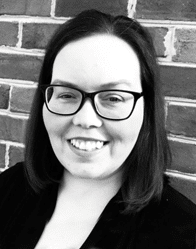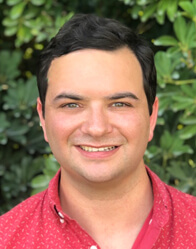Season 1 – Episode 56 – First Generation Students in Higher Ed
In this episode, we explore the remarkable experiences of first-generation college students in the United States. They confront unique challenges, including financial limitations, imposter syndrome, and cultural adjustments, as they pioneer the path to higher education without the support systems of college-educated parents. Despite these obstacles, their resilience and determination, often bolstered by mentorship programs, offer an inspiring narrative of triumph and empowerment.
Episode Transcript
Click to expand/collapse
Darren Gaddis: From CITI Program, I’m Darren Gaddis, and this is On Campus. Today I spoke with Sarah Whitley, the Vice President for the Center for First-Generation Student Success, an Initiative of NASPA – Student Affair Administrators and Higher Education. As a reminder, this podcast is for educational and entertainment purposes only. It is not intended to provide legal advice or guidance. You should consult your organization’s attorneys if you have questions or concerns about relevant laws and regulations discussed in this podcast. Additionally, the views expressed in this podcast or solely those of the guest and do not represent the views of their employer.
Hi, Sarah. Thank you for joining me today.
Sarah Whitley: Thanks so much for having me. I’m really looking forward to our conversation.
Darren Gaddis: To get us started today, what is your educational and professional background?
Sarah Whitley: Sure. I think probably the most important thing for me to start off was that I’m a first-generation college graduate and that is really critical to the work that I do and I’ve had an opportunity to do over the last six years, but really throughout my entire career. Looking way back, I was really fortunate to have parents who were really invested in education and so going to college was something that was always very clear to me. And so I am a product of the state public universities of the Commonwealth of Virginia, from an associate’s degree through a PhD at the University of Virginia. I had a really wonderful opportunity to grow my career in higher education, focused on serving first-generation students, but didn’t really know that’s what I was doing. I was doing orientation work, first-year experience work, academic work, but at the University of Virginia had an opportunity to really solidify my career in dismantling systems of inequality in higher ed with a real focus on first-generation college students.
Since after leaving the University of Virginia, had a wonderful opportunity to open the Center for First-generation Student Success, which is where I’ve been for the last just over six years, and we’ve been growing the work of the center. And we are a partnership between NASPA, which is the second-largest international higher education association, and The Sudor Family Operating Foundation based in Texas.
Darren Gaddis: And to help ground our conversation today, who is considered to be a first-generation student and what do we mean when we refer to somebody as a first-generation student?
Sarah Whitley: Sure, and we could probably do a whole series of podcasts on this particular conversation. When you get down to the nuts and bolts of it, it’s a student whose parents did not complete a college education. That’s the simplest way you can ever say it. Now, I do think it’s really important for us to take a moment and talk about the complexity of the first-generation identity and how complicated it is for institutions of higher education to understand who we’re talking about when we say first-generation. TRIO programs or federal TRIO programs have been around for 50 or more years, and have done wonderful work and such as neither parent or guardian graduated with a four-year college college degree. Many institutions use that definition. However, now we’re beginning to see a shift to a new definition, which is neither parent or guardian graduated with a four-year college degree from an institution in the United States, and that is a domestically born student with an internationally educated parent.
And the idea being that student’s parents struggle to support their understanding of college-going, the hidden curriculum, all the things you’re trying to navigate in college-going, and so that can become a real challenge. I’ll tell you, one of the largest problems nationally that we see is definitional alignment at institutions and ability to effectively track data on first-generation college students. The real answer to your question is it’s a student whose parents didn’t get to complete college, but when we get into the nuance of what is the definition, how is it being collected through the college admissions process, how are institutions tracking that data? Who really is first-generation? How many of those students are out there? It gets really messy really fast, and that’s one of the things we do in our work in the center, is to try to help institutions fix those kinds of problems. Because I always say it’s jokingly, but I really do mean it. You can’t serve students if you don’t know who they are.
Darren Gaddis: To clarify, when you say college degree, would that be an associate’s, bachelor’s, either or, or what degree types are you referring to?
Sarah Whitley: And so typically, again, you’re getting into the messiness of this nuance. The typical definition focuses on what is referred to as a four-year college degree or a baccalaureate degree, a bachelor’s degree. There are folks out in the field who believe that we should base it upon the institution we’re serving. So if you’re at a community college or a technical college and you get an associate’s degree, that should be the standard, and that’s a really messy part of the conversation too. There are about eight working definitions of first-gen. In the work of the center, we really try to elevate the first two that we spoke about earlier. Neither parent or guardian graduated with a four-year college degree or neither parent or guardian graduated with a four-year college degree from an institution in the United States.
Darren Gaddis: With this more fluid definition of first-generation students in mind, I would also potentially imagine that the demographics for first-generation students are also somewhat fluid. How have the demographics of first-generation students changed in recent years?
Sarah Whitley: Yeah, it’s a great question and it’s changing and evolving, and so, one, if you have all of these issues with definition alignment and data tracking, it’s really hard to say how many first-gen students are out there. It also is a self-identified identity, so you can’t look at a student and tell they’re first-gen or you can’t force them to do whatever required of them. There are more instances of institutions requiring it as a question on the application, but students sometimes won’t answer it correctly. There is some belief by students that by answering as first-generation, it may be held against them in the admissions process, that the institution might not think that they’re capable, and that’s a conversation we can come back to. But we know that the number that gets thrown around the light is one third. About one of undergraduate students today are first-generation.
We can talk about graduate students too. That’s an important conversation. But we also know because it’s self-reported, that’s likely a low number. I also really believe it’s a low number when I learn about how institutions are collecting that data and tracking that data. There are so many loopholes for a student to not identify that we know those numbers are likely larger. We also know that today, our student population in higher education is more diverse than ever and students from limited income backgrounds, from marginalized racial communities, undocumented students, indigenous students more often are first-generation. So we know that there are increasing numbers of first-generation students in college and coming to college, even if the number nationally students as a whole, there’s fewer of them to come to college, we know that the majority of them are going to be first-gen.
There’s also been some studies done looking at the number of children under the age of 18 who are likely to be future college-goers. About 70% of those students have the potential to become first-generation college students, so there are a lot of students. We’re also looking more at intersectional identities and then we can talk more about that, but there are large numbers of first-generation students. I jokingly say sometimes that I’m trying to work myself out of a job because I’d like for every student who’s first-generation to get to go through college, but it’s going to take us a really long time to get there.
Darren Gaddis: As you just mentioned graduate students and doctoral students, how does a graduate or doctoral student being a first-generation student differ from somebody who would be entering into a undergraduate degree program and what ways are they supported differently at their institution?
Sarah Whitley: I think the first thing we need to touch on is who is a first-generation graduate student, and the field is actually quite divided over this, including students in graduate programs. And the real differentiator is are you first-generation if you are the first person in your family to have gone through undergraduate education and then into graduate school, more of a traditional approach, first-gen since the beginning, if you will? And then the other belief is that if no one in your family, your immediate family or parents, attended graduate school, you should be considered first-gen. And so your parents may have gone to undergrad and they may have gotten a bachelor’s degree but they didn’t pursue graduate education. There’s a slippery slope there and people get really fired up over that particular conversation when you get into graduate education, and I’ll tell you I found probably the most first-gen parts of my identity came out when I went into doctoral education, because it’s complicated.
You’re managing an internship or an assistantship. You may have left employment like I did. You may have left employment to go back to school. You’re navigating new healthcare systems often that come with graduate education, but the process is really complicated of coursework and meeting with your advisors, navigating all the complexities of things like comprehensive exams or writing for your proposal or your dissertation process and choosing a committee. There’s all of this nuance to that work, and really, if you don’t have a wonderful advisor, it can be really tricky. I also think it’s important that we acknowledge the cost. You can rack up a tremendous amount of debt in graduate education if you’re unfamiliar with how to obtain assistanceships or how processes work, or even how to select programs that have more support. And so it is just a different set of curriculum expectations and it’s complicated.
Darren Gaddis: Today we’ve talked a lot about the changing landscape at first-generation students. When I think about the changing landscape of first-generation students, I often wonder about the different support structures that students need specifically from faculty members, but also from administrators and staff. Could you potentially break down those different support structures between undergraduate and then also graduate and doctoral students?
Sarah Whitley: Yeah, sure. Let’s start with undergraduate students and there’s certainly some overlap in needs, but certainly ways we can talk about those independent of each other as well. Needs for students are changing. First-generation students in particular were disproportionately impacted by the COVID-19 pandemic. They saw a need to often leave campus quickly when March of 2020 happened and those students were pushed away. Many of them lost housing security, food security, job security, on-campus jobs, and internships. So really, we’re still in a phase of bringing students back from that situation, helping them understand what that looks like. There’s also learning loss from during that time. For students who are coming into college, there’s learning loss from the middle and high school time in which they were out of school during COVID, but we know that first-gen students were disproportionately impacted during that time.
We also know that first-gen students have a lot of intersectional identities, so they often are older, they often have families. About 60, 65% of currently enrolled veterans are first-generation. The list goes on and on. And so by actually understanding who our students are, it first gives us an opportunity to provide them with more supports and resources. But for faculty, understanding who’s in their classrooms is really important, but helping them dismantle systemic barriers, hidden curriculum. We have made higher education so incredibly complicated. We use words like syllabus that students have never heard before. We ask them to pay bills at the bursar’s office. Something that we have been tracking over the last couple of years that’s been interesting is a shift in movement from using the term office hours to actually calling them student hours, because students thought that faculty were just in their offices doing work and didn’t realize it was time for them.
So, finding opportunities to dismantle systemic barriers to break apart the hidden curriculum of college-going for undergraduate students is incredibly important because it only takes one or two small instances where a first-gen student might go, “I don’t think this place is for me. I can’t solve this problem. I think it’s easier to leave than it is to stay.” For graduate students, it’s similar. It may be a different set of situations. They’re navigating complicated cost structures. They’re navigating assistantships, they’re navigating things like, “How do I select a dissertation committee? How do I navigate all of these complicated processes?” They may be very unfamiliar with research and are now doing research for the first time.
And so it’s really about having people around you who can support you through that, but also for institutions to take on the onus for making their institutions in a better business shape for first-generation students. It’s a really important thing, and I wanted to make sure that we talk about that tonight as we’re chatting. We have to stop putting the onus back on first-gen students to fix higher education and navigate their way through it. We have to make sure that institutions are changing the way they do business for first-gen students, and that’s both at the undergraduate and graduate level.
Darren Gaddis: For administrators, faculty and, staff members out there who are looking to better support first-generation students on their college campus, what are some resources that are available out there that might go beyond the resources their campus currently offers?
Sarah Whitley: What’s really interesting about the work of the center is that we aren’t an access organization. We’re not out trying to recruit students out of high school and bring them into college or students out of the workforce and bring them into higher education. We of course want that and support that fully, but what makes the center unique is that we’re really the only organization that works directly with colleges and universities to better prepare them to serve those students. I think the most important thing I ever say, and I say it just about every day, is that we have to stop recruiting first-generation students into colleges and universities that aren’t prepared for them. We’re making a huge promise and we’re asking them to spend a lot of money and a lot of time and resources, and then we aren’t equipped to provide them with what they need to be successful.
And so I think it’s a really important part of the conversation about how we’re navigating those kinds of relationships and what we’re able to do to support those students along the way. In the work that we do in the center, we offer a plethora of resources that are really open to anyone who’s interested. We have a national conference that you can get a lot of really wonderful resources within. We have online learning events. We just had one on fundraising and resourcing and supporting your first-gen efforts. We have an academic peer-reviewed journal. We have have original research, we have resource guides, e-learning modules. You name it, we pretty much have it when it comes to first-gen work, and those are available resources to anyone who’s doing this really important work, and we encourage you to come. And if you can’t find it, to ask us, and we’re happy to help you look for it, dig around and figure out what’s feasible.
But the other thing that the center offers that I think it’s important for folks to know is we are home to the First Scholars Network. That is a four-phased experience where institutions apply with a demonstrated commitment to supporting and serving first-gen students, and then we spend time with them for years, building communities of practice, sharing resources, creating relationships. And then when institutions get to the third phase of that model, we commit to a multi-year systemic transformation experience with institutions. It’s data-driven. We provide what’s called expert guidance to lead institutions through.
We currently have 349 institutions nationally engaged in this important work, and so it’s really likely that some of your listeners may be at our Scholars Network institutions, and if you don’t know, I’d ask you to go check it out or come to look at the list on the center’s website. I’d also encourage you, if you are at an institution that has federal TRIO programs, to get to know that work, get to know the people leading that work. It’s really powerful work that happens across TRIO and they’ve been doing it for a really long time, and I’m proud to say this. It’s probably a bit of a shameless plug, but our Center for First-Generation Student Success really is the national resource for this work.
Darren Gaddis: When you reflect back on those administrators, faculty, and staff members who have gone through the First Scholars Network, what do you think are some takeaways that they get from their program and how does this program help them potentially overcome some potential misconceptions that they themselves might have had about first-generation students?
Sarah Whitley: The work of the First Scholars Network that’s so important in the earliest phases is around really moving institutions from just thinking programmatically about this work to thinking more systemically about this work. Very often it is a person at the institution whose full-time job is not first gen work. Some people are just doing it on a volunteer basis, sometimes it’s a part of a job, and they at the last minute have been told, “We really need you to do this work.” And they’re like, “Okay, let me try to pull something together.” And that turns into things like mentoring programs or living learning communities, freshmen seminar courses, and those are wonderful. Do not get me wrong. They are wonderful resources, but if we want to see scalable change that is sustainable at institutions, we have to do it at the systemic level.
So some of the work that we do through the network are things like institutionally mapping supports and resources both directly and indirectly for first-gen students. We audit policy procedure jargon, data to figure out what’s really working and not working for institutions. We work around strategically aligning your leadership. How are your president, how’s your cabinet thinking about first-gen? We help align your data systems, so really helping people think differently about the work and helping to think more systemically, while they’re also doing really important things like mentoring programs and living learning communities and student organizations along the way as well.
Darren Gaddis: With all of this in mind, what do you think is still one area of support that faculty, staff and administrators could still provide first-generation students with?
Sarah Whitley: Gosh, there are so many things, but I think probably we could break it into a couple of pieces, and one would be faculty engagement and faculty understanding what it means to teach first-generation students in classrooms. The number one question we get in the center is how to increase faculty engagement. And it’s one thing to tell a faculty member, “40% of the students in your classroom are first-generation.” It’s another thing to provide them with the supports and resources so that they actually understand what that means. And it also helps dismantle some of the deficit-based culture that we see around first-gen. This idea that students who are first-gen are not capable, they are not as academically prepared, they are distracted by things like work or having children or other things that are going on in life. And I think it would help faculty to really dismantle that culture.
I’m sure you’ve seen the stories of faculty who were unwilling to work with a student who had a major life situation going on, and the student ended up failing the class. Helping faculty better understand what today’s students are experiencing, and of course, having accountability in your classroom and having academic rigor is important, but also being able to see their students as people and humans who are really trying hard and want to do important work in these spaces. Honestly, too, for staff, it is trying to train staff who are not in the typical service provision areas. So very often, issues arise for first gen students and navigating financial aid or payment policies. I need to pay my tuition bill, I need to pay for books, things of that sort. And making sure folks in your administration and finance offices understand what the first-gen student experience is.
And if you find out that a student is first-gen and you’re not sure how to support them, where to send them, how to get those resources. We’re currently doing some really interesting work with New Jersey City University where they have developed a training program for their campus community, and every semester they’re delivering that to a set of offices on their campus, six to eight offices, and giving them a semester to learn about first-gen student experiences, but also to cultivate ways their own office can be more responsive to first-gen students. They’re moving all around their campus community, they’re going into academic affairs next, but then those offices are becoming mentors to other offices around, “Hey, we changed this policy. We thought about this differently. We’re actually opening our office one night a week until 7:00 PM to better accommodate our student population.” There’s a lot of interesting things that can happen if just there’s better awareness of the work that’s happening. A lot of institutions are using national first-generation college celebration as a way to really galvanize interest in those spaces as well.
Darren Gaddis: And what else would you like us to know about first-generation students in supporting those students on college campuses?
Sarah Whitley: I think there’s a couple of things. One, we’ve touched on this a little bit. Systemic change is where real change is going to happen, and that has to be at the institutional level with institutional buy-in, and you absolutely cannot do the work of better serving and supporting first-gen students without leadership engagement. It’s your President, it’s your cabinet level leaders. In the work we do in the First Scholars Network, we require the institutional support of the President and two cabinet-level leaders because we know how critical that is to change. However, we also know that in higher education, there’s a lot of staff turnover right now, so a bit of that is also for succession planning. There’s so many initiatives in higher ed that get going down the road and then some really critical person leaves and the whole thing falls apart, and we’re trying to create sustainable structures for that work.
One thing that I think is important for your audience in particular is to understand that there is a lot of desire publicly to do research on the first-generation student experience. That’s from long-term higher ed researchers who have been doing this work for decades to folks just on campus, communities in education and sociology and psychology in lots of parts of the community. You just want to learn more about what does it mean to be first-gen at their institution, within their academic program. But very often the identity is conflated with race and limited income status in ways that aren’t very clear in research. So you’ll read a journal article and it will say, “Oh, this is about first-generation college students.” But when you get into the methodology, you will realize that it’s about first gen students who are from a certain background, who are limited income, who are Pell eligible, a whole list of things.
And while that’s helpful, it doesn’t tell the full picture. It’s actually just under 50% of first-gen students nationally are Pell eligible, but we have a sort of a national narrative that they all are, and it doesn’t always paint the right picture for what that population is grappling with. And you have to also figure that out for your own institutional community. We absolutely want empirical research on this population. It’s really key to progress, but we need it to be really thoughtful. And also, there are first gen students who should be involved in doing that work as well. Bringing them into research positions, allowing them to be a part of presenting about the first-gen identity is really important as well. As I mentioned earlier, we have an academic peer-reviewed journal, the Journal of First-Generation Student Success, and we’re always looking for folks who want to get engaged in that kind of work as well. But just grateful for any opportunity to elevate the first-gen identity however we can.
Darren Gaddis: Sarah, thank you for joining me today.
Sarah Whitley: Thank you so much. Appreciate it.
Darren Gaddis: Thank you for listening to today’s episode, and be sure to follow, like, and subscribe to On Campus with CITI Program to stay in the know. If you enjoyed this podcast, you might also be interested in other podcasts from CITI Program, including On Research and On Tech Ethics. Please visit CITI Program’s website to learn more about all of our offerings at www.citiprogram.org. I invite you to review our content offerings regularly as we are continually adding new courses, subscriptions, and webinars that may be of interest to you, like CITI Program’s Navigating Online and Hybrid Teaching course. All of our content is available to you anytime through organizational and individual subscriptions.
How to Listen and Subscribe to the Podcast
You can find On Campus with CITI Program available from several of the most popular podcast services. Subscribe on your favorite platform to receive updates when episodes are newly released. You can also subscribe to this podcast, by pasting “https://feeds.buzzsprout.com/1896915.rss” into your your podcast apps.
Recent Episodes
- Episode 55: Generative AI in Higher Education
- Episode 54: College Student Loneliness
- Episode 53: Diversity and Affirmative Action: Higher Education Admissions
- Episode 52: Affirmative Action and College Admissions
Meet the Guest

Sarah E. Whitley, PhD – Center for First-generation Student Success, NASPA
Sarah E. Whitley serves as vice president of the Center for First-generation Student Success, an initiative of NASPA and The Suder Foundation. She is the author of First-generation Student Success: A Landscape Analysis of Programs and Services at Four-year Institutions as well as other scholarship on first-generation and related topics.
Meet the Host
Darren Gaddis, Host, On Campus Podcast – CITI Program
He is the host of the CITI Program’s higher education podcast. Mr. Gaddis received his BA from University of North Florida, MA from The George Washington University, and is currently a doctoral student at Florida State University.










